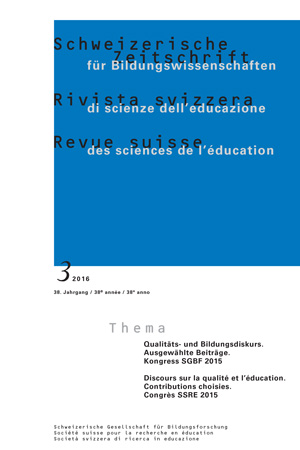Some comments on the term «quality» in educational research
DOI:
https://doi.org/10.24452/sjer.38.3.4988Keywords:
Quality, Normativity, Evaluation, Political AdviceAbstract
The contribution discusses the meaning and use of quality as a concept in educational research based on two studies, PISA and StEG (Study on the Development of German All-Day Schools). Two different modes of discourses on quality in educational research are identified: an empiric-analytic mode, and a descriptive mode. Independent of the mode of discourse, quality in educational research is connoted with value judgements. These value judgements always are based on normative presuppositions; they affect – in different ways depending on the mode – the evaluation of quality. Educational research is in the position to make the normative presuppositions of quality evaluation explicit and to take into account multiple criteria. In doing so, it is not under politics’ spell as is sometimes criticized.
Downloads
Downloads
Published
Issue
Section
License
Copyright (c) 2016 Markus Sauerwein, Eckhard Klieme

This work is licensed under a Creative Commons Attribution 4.0 International License.



